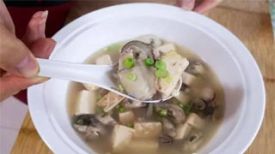Cold is the main source of contraction and traction, which generally refers to contraction and traction. When the temperature is low, the skin and wrinkles of the human body contract, which solidifies the yang energy outside the guard and prevents the body from being invaded by cold evil.
Low temperature weather can easily cause cardiovascular diseases
In traditional Chinese medicine theory, there is a concept of "opening" and "closing". When the temperature rises, the body's qi moves upwards and outwards, which is equivalent to opening the door, causing the corresponding peripheral blood vessels to expand; When the temperature drops, the human body's qi moves downward and inward, which is equivalent to the door closing, causing the corresponding peripheral blood vessels to contract.
As age increases, the smooth muscle part of blood vessels may become obstructed, unable to open and close smoothly, leading to vascular dilation or contraction disorders, thereby causing blood pressure fluctuations; Arteriosclerosis or atherosclerotic plaque often exists in the vascular endothelium, and vascular fragility increases. At this time, blood pressure fluctuation is easy to break the vascular endothelium or shed plaque.
When the temperature drops, the peripheral blood vessels of the human body contract, and the corresponding blood pressure increases, leading to vascular lesions and easily triggering cardiovascular and cerebrovascular diseases.
Self testing vascular age
1. Impatient and irritable, unable to control emotions.
2. Decreased memory, forgetfulness, and forgetfulness.
3. Hands and feet feel cold and numb.
4. If you move, you may feel chest tightness and palpitations, and even chest pain when climbing stairs.
5. Prefer salty, sweet, thick flavored, and fried foods, with more greasy meat and less vegetables and fruits.
6. Long sitting, long lying, lack of exercise.
7. Long term smoking, daily smoking times smoking age>400.
8. Have a history of hypertension.
9. Some immediate relatives have died of heart disease or stroke.
10. Elevated blood lipids or blood sugar.
Among the above 10 items, 0-4 items indicate normal vascular age; 5-7 items indicate that the vascular age is 10 years older than the physiological age; If the number is greater than 8, it indicates that the vascular age is 20 years older than the physiological age.
"Elderly" blood vessels need protection
It is recommended that people with older blood vessels undergo regular vascular examinations.
The age of blood vessels is between 30 and 50 years old. For individuals without underlying diseases, it is recommended to have their blood vessels checked every 2 years. For individuals with underlying diseases, it is recommended to have their blood vessels checked every 1 year; The age of blood vessels is between 50 and 70 years old. For individuals without underlying diseases, it is recommended to have their blood vessels checked every year. For individuals with underlying diseases, it is recommended to have their blood vessels checked every six months; For individuals aged 70 and above with no underlying diseases, it is recommended to have their blood vessels checked every six months. For individuals with underlying diseases, it is recommended to have their blood vessels checked every three months.
In addition to regularly checking blood vessels, the following points should also be noted in daily life.
Pay attention to keeping warm. Prevent the invasion of cold evil and protect the body's yang energy. Pay close attention to weather changes and adjust clothing accordingly based on temperature. Pay attention to keeping the head and neck, abdomen, elbow and knee joints, and hands and feet warm to avoid severe fluctuations in blood pressure caused by local exposure to cold.
Eat in moderation. Patients with cardiovascular and cerebrovascular diseases such as hypertension should avoid overeating, maintain stable blood pressure, and prevent vascular accidents.
Moderate and moderate exercise. Avoid excessive exercise that can lead to sweating profusely, and focus on aerobic exercises such as Wuqinxi, Baduanjin, Tai Chi, etc.
Moxibustion and Tuina. For those with joint pain or constitution deficiency cold, local moxibustion or moxibustion on Guanyuan and Zusanli acupoints can be used to enhance the positive qi and enhance the ability to resist evil; Patients with cold lower limbs and feet can choose to soak their feet in warm water and immerse their feet in warm water at 40-50 degrees Celsius for about 30 minutes, which can warm up the body and lower blood pressure. In addition, you can also massage the Yongquan acupoint and other acupoints such as Taixi and Taichong before bedtime to nourish the liver and kidneys, and have a nourishing effect on water and wood.
Maintain emotional stability and ensure adequate sleep. Human emotions, such as impatience and irritability, can lead to fluctuations in blood pressure. Not being in a hurry, not getting angry, and ensuring sufficient sleep are good ways to maintain stable blood pressure. Elderly people are impulsive and irritable, which can cause drastic fluctuations in blood pressure and even endanger life.
Take medication regularly. Patients with underlying diseases, such as hypertension and coronary heart disease, should regularly self-monitor their blood pressure when the temperature drops, follow medical advice, take medication regularly and in moderation, and do not reduce medication without authorization. They should also not stop taking medication due to short-term self testing of normal blood pressure. If blood pressure fluctuates significantly, it is important to seek medical help and adjust the treatment plan in a timely manner.
Be careful of vascular aging, come and test your vascular age quickly
Release time:2024-06-05 14:08:49
Reading:192
Word Count:5710
Subscribe to email


